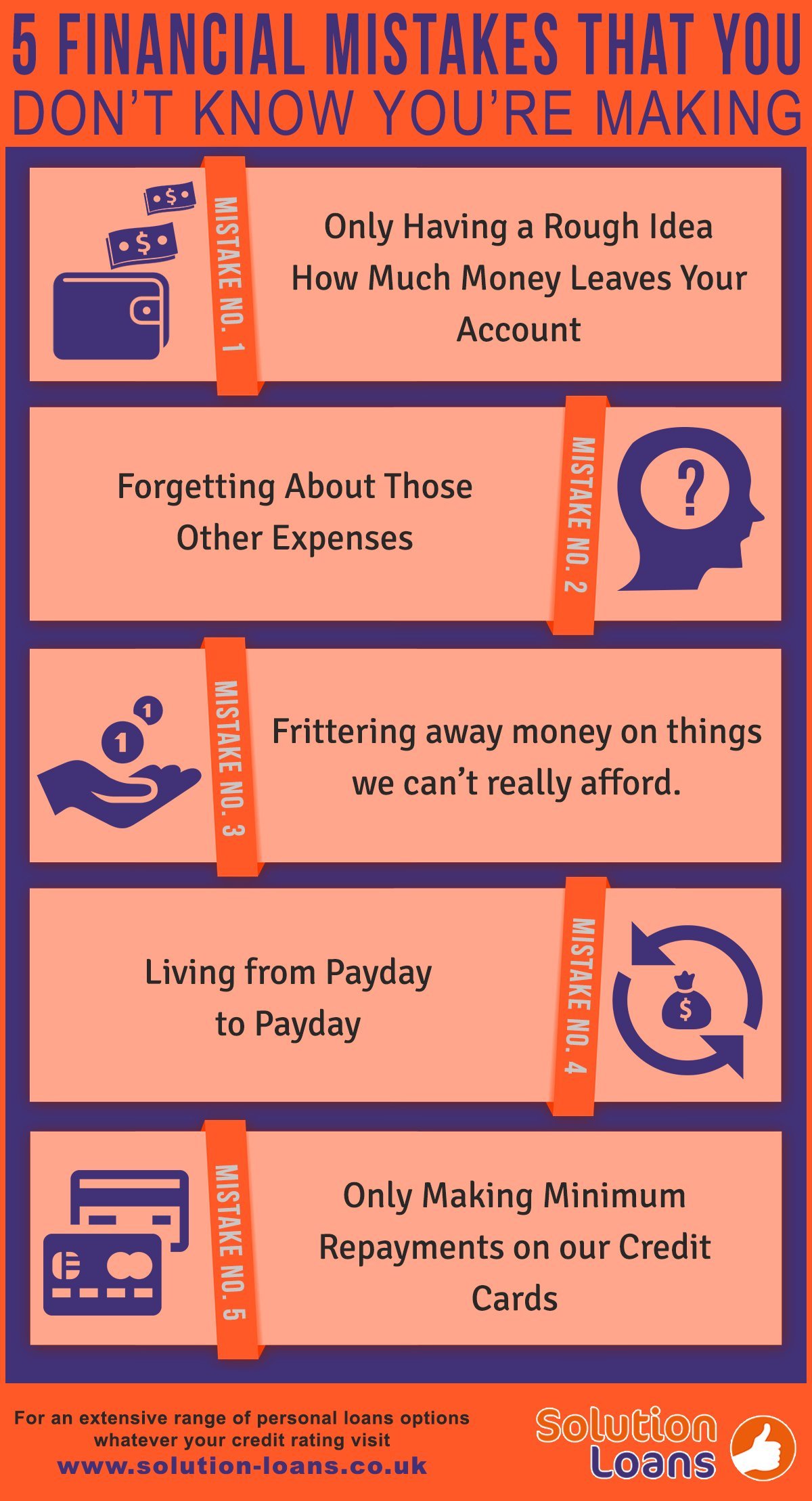Money management is one of those things that we all think that we’re pretty good at but when it comes down to it, perhaps we are not quite as good as we thought!
To help you come to grips with your finances we have highlighted 5 of the most common mistakes that we make that we are unaware we are making.
By identifying these 5 mistakes, we believe that factoring these into your thought process and budgeting will help to improve your long term financial situation. Read on to find out more.
 Mistake No. 1 – Only Having a Rough Idea How Much Money Leaves Your Account
Mistake No. 1 – Only Having a Rough Idea How Much Money Leaves Your Account
We all have a rough idea when bills are leaving our account and how much they are likely to be but how can we possibly expect to manage our money properly without knowing exactly how much money leaves our account each month?
Make sure that you keep a regular check on your bank account along with cross referencing your monthly statement with your expected outgoings to rectify this situation.
Mistake No. 2 – Forgetting About Those Other Expenses
Rectifying mistake number 1 can often prove to be a little easier than sorting mistake number 2. Factoring our council tax bills, electricity/gas and rent/mortgage payments into our budget is a fairly easy thing to do. However forgetting some of the incidental costs that we incur each month can easily throw our budget off.
Did you remember to include the money that you spend at Starbucks each day into your budget? What about the night out you have planned at the end of the week? Your car’s MOT which is due in 2 weeks, did you remember to factor that into your budget?
It is crucial that you factor all expenditure into your budget if you would like to create an accurate picture of your finances. This is one of the keys to avoiding overspending.
This leads us nicely onto mistake number 3, are you spending more than you have to.
Mistake No. 3 – Spending More Than You Need To
Once you have a clear view on exactly how much you are spending and where your money is going, the next stage is to work out if all of the spending is absolutely necessary.
No-one enjoys the thought of making cutbacks but it can often be amazing how much difference some cut-backs can make without negatively impacting our lives at all.
Cancelling obsolete payments can soon begin to add up and provide you with additional cash that you can put to far better use.
Mistake No. 4 – Living from Payday to Payday
This is not always through choice but living from pay day to pay day is a dangerous financial mistake to make.
With the unemployment rate still high and it taking longer for people to find new jobs than ever before, many financial experts now recommend having approximately 8-12 months of necessary living expenses rather than the traditional 3-6 stored away in our saving for emergency situations such as loss of job.
Mistake No. 5 – Only Making Minimum Repayments on our Credit Cards
Whilst there can be no doubt that only making a minimum repayment is certainly better than making no repayment at all, this repayment method is a terrible way of trying to clear credit card debt.
However, we strongly recommend using any additional cash that you may have identified in step 3 towards paying off your credit card debt at the earliest possible opportunity.
As one balance is repaid in full, you will then have extra money to put towards any remaining cards. Continue this until you are debt free.
If you believe a debt consolidation loan could help to bring debts under control, visit the Solution Loans website to view their range of bad credit loans – https://www.solution-loans.co.uk.



 Mistake No. 1 – Only Having a Rough Idea How Much Money Leaves Your Account
Mistake No. 1 – Only Having a Rough Idea How Much Money Leaves Your Account

